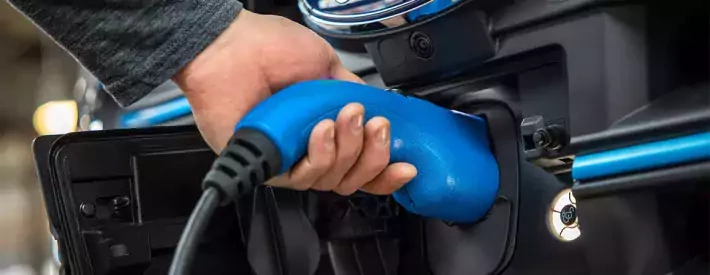How vans are getting ready for 2030

The government’s move to ban new petrol and diesel vehicles from 2030 doesn’t just impact passenger cars, vans need to go electric too. And the sector is already making the move.
No one shouted about it, but the government's decision to ban sales of new petrol and diesel cars from 2030 onwards applies to light commercials too. It means that where diesel has been the fuel of choice, the new normal will be plug-in vans to meet the needs of some fairly testing duty cycles.
The move to electric has already been on the cards, and while the 2030-time limit adds extra impetus, manufacturers are already shifting to battery electric models offering longer ranges between recharges; and shorter recharge times. It all means that we’re going to have to get used to a raft of new vehicles either driving off the forecourt or coming into the workshop for maintenance.
Renault’s Zoe Van has a quoted 245-mile maximum range, and when specified with the optional 50kW DC onboard charger you can take the battery from 0% to 80% of its capacity in little more than 70 minutes. Plug it in for 30 minutes and you can enjoy a 90-mile range boost.
With a modest 1m3 cargo area and only able to transport loads weighing no more than 457kg, the little hatchback-car-derived Zoe Van's carrying capacity is alas limited. But there are already larger options available and the range is only likely to grow further.
Grossing at either 3.1 or 3.5 tonnes, the Ford Transit-rivalling Renault Master Z.E electric can travel up to 75 miles before it has to be plugged in to a charging point again.
Heading to the future
Ford is late into the electric light commercial market, but argues that what it has to offer will be well worth the wait. Due to appear in the UK in spring 2022, the new E-Transit will be able to record up to 217 miles before its battery needs replenishing.
At 67kWh, the battery has over twice the capacity of the one fitted to the Renault Master Z.E. A 115kW DC fast charger can take it from 15% to 80% of its capacity in a brisk 34 minutes.
Nor should customers have any reason to complain about its ability to shift loads.
With cargo area capacities of from 9.5m3 to 15.1m3, the Ford E-Transit van will be able to haul up to 1,616kg. The chassis cab version will be capable of up to 1,967kg.
Progress being made by battery-electric light commercials means that they are starting to catch up with models fitted with range-extender (sometimes referred to as series hybrid) technology. So far however the latter have managed to stay ahead.
Geely-owned London Electric Vehicle Company has developed the VN5 van. A 2.9-tonner, it offers a 58-mile range solely on battery power says LEVC, increasing to 301 miles when its range-extender 60kW 1.5-litre petrol generator kicks in.
Hybrid vans will remain on sale until 2035 alongside hybrid cars and, like cars, will have to be capable of travelling "a significant distance" with zero emissions says the government. What constitutes a significant distance has yet to be determined.
No petrol, no diesel, no driver?
By that stage some delivery vans may be driverless.
On trial in the London Borough of Hounslow is the autonomous, electric, Kar-go Delivery Bott from British start-up Academy of Robotics. It’s being used to deliver medicines to a local chemists’ customers.
Capable of transporting up to 48 packages, each of which is no bigger than a shoebox, it has a 60-mile range and its battery can get to 70% of its maximum charge in an hour says the manufacturer.
Householders expecting deliveries have an app on their phone which tells them when their package has arrived outside their home. They use the same app to unlock the Kar-go Delivery Bott and take out their delivery.
Tough guidelines govern driverless trials, and require somebody to sit in the vehicle in order to take control if things go haywire. So, Delivery Bott has an operator on board whenever it plies the borough's streets.
The commercial vehicle sector is facing the same challenges as passenger vehicles, and although it receives less exposure the outcome will be the same: all new vans will be electrified from 2030 onwards.




